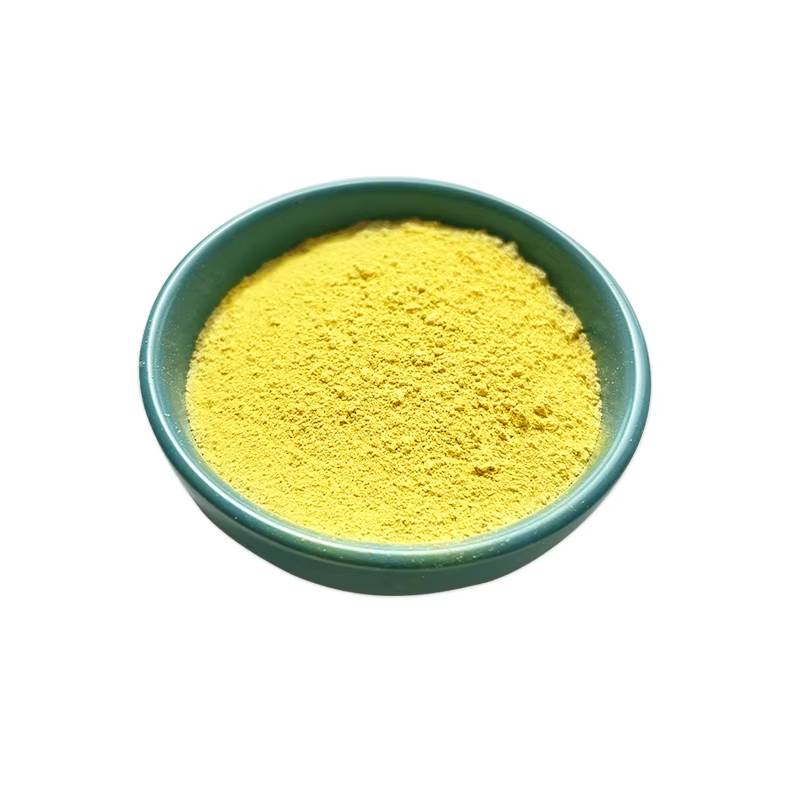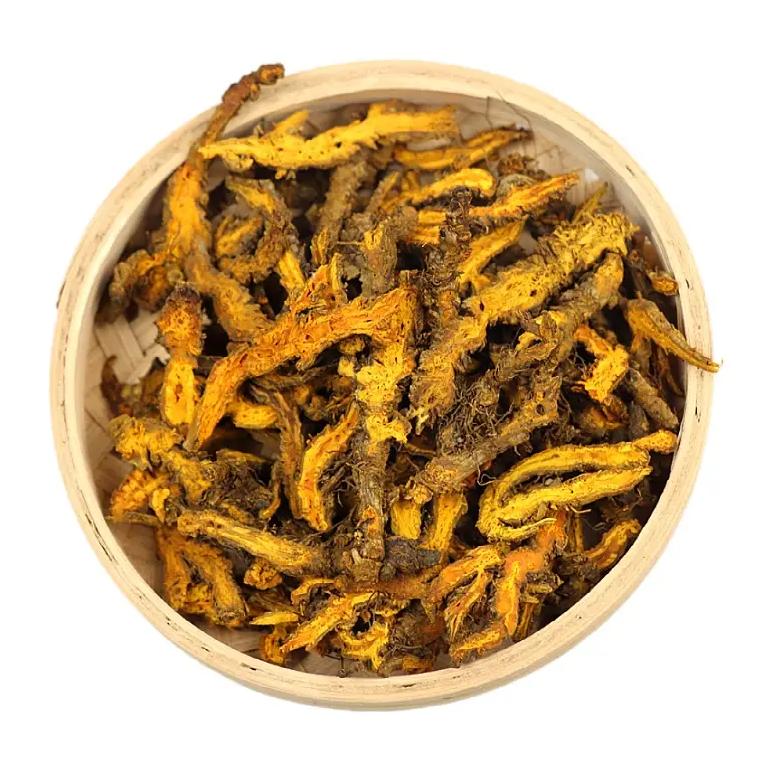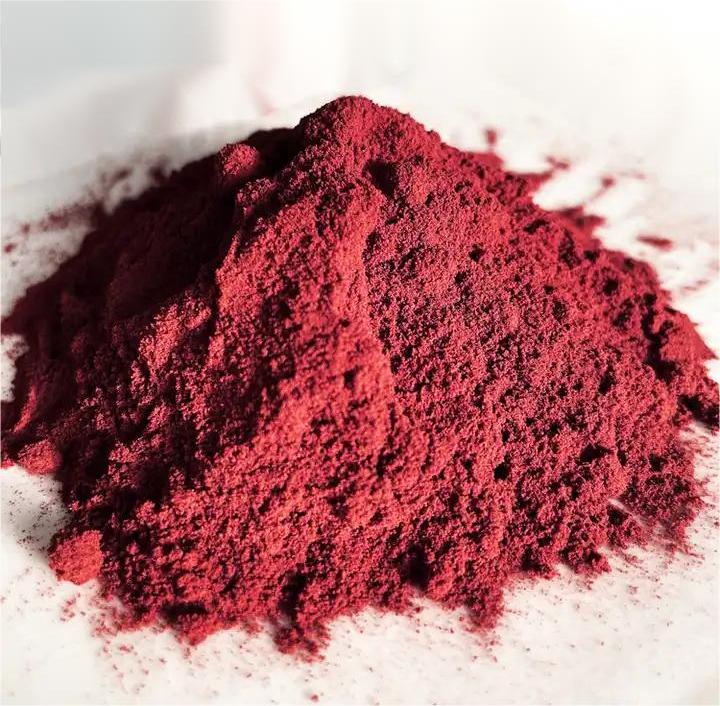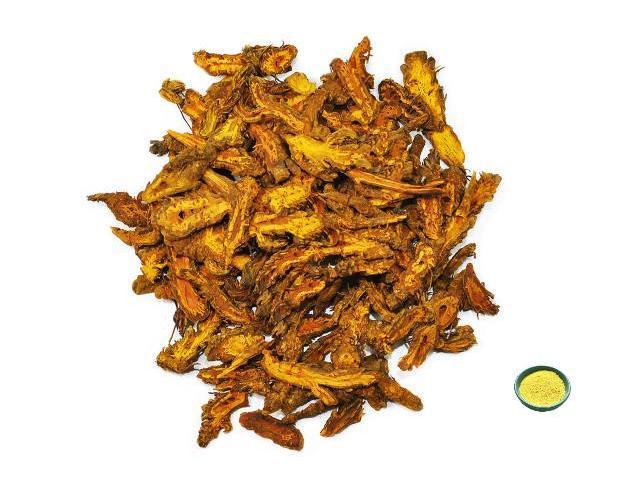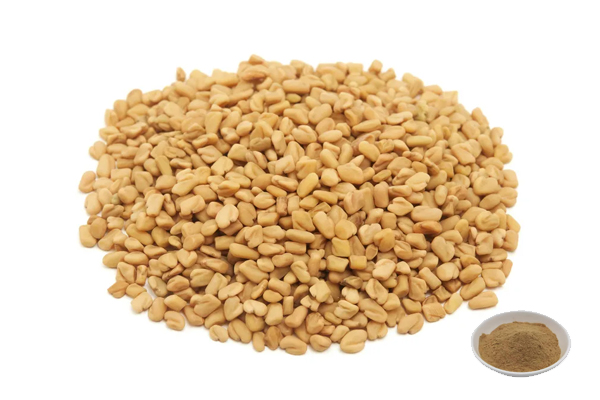Berberin HCL Powder 97% HPLC
Latin Name:Coptis chinensis Franch
Source:Coptis chinensis Franch Root
Active Ingredients:Berberine HCL
Specification:97%
Testing Method:HPLC
Appearance:Yellow Fine powder
Pesticide Residue:Comply with (EC) No 396/2005 Standard
- Description
- Data Sheet
- Certificate
-
What is Berberin HCL Powder?
Berberine hydrochloride is an isoquinoline alkaloid. It is known as Berberine. It is found in many plants of 4 families and 10 genera, including Berberidaceae. Berberine can precipitate yellow needle-like crystals from ether. Melting point 145℃. Soluble in water, insoluble in benzene, ether, and chloroform. Berberine hydrochloride, also known as berberine, is an important alkaloid extracted from Berberis, Phellodendron Bark, and other plants, belonging to the chemical drugs purified from traditional Chinese medicine, used for gastrointestinal infections caused by sensitive pathogenic bacteria, such as gastroenteritis.
Green Spring Technology supplies Berberin HCL Powder, which is extracted from Coptis chinensis Franch root. It is high in purity, and low in impurities, heavy metals, and microorganisms per the European Pharmacopoeia.
Founded in 2000, Green Spring Technology is committed to providing customers with natural, safe, and organic plant extracts. The products are manufactured to the highest international industry standards, complying with EU EC396, EU 2023/915, and the highest solvent residue standards. It holds 8 certifications and 7 patents, and its products are sold in more than 62 countries worldwide. Green Spring has obtained Halal, Kosher, COSMOS, BRC, IFS, FDA, ISO9001, ISO22000 and many other certificates.
Specification:
Product Name
Berberine HCL
Latin Name
Coptis chinensis Franch.
Source
Coptis chinensis Franch Root
Active Ingredients
Berberine HCL
Specification
97%
Testing Method
HPLC
Appearance
Yellow Powder
Pesticide Residue
Comply with (EC) No 396/2005 Standard
Regulation:
It conforms to EU regulations.
Looking for a Quotation?Benefits:
Antibacterial
Berberine Hydrochloride is usually taken orally for the treatment of mild intestinal infections. Berberine Hydrochloride chloride is effective in inhibiting Staphylococcus aureus and Enterococcus faecalis. Berberine hydrochloride also has a strong inhibitory effect on Shigella dysenteriae and Salmonella dysenteriae, and can be used in the treatment of bacterial dysentery. Helicobacter pylori (HP) infection is the main cause of peptic ulcers.
Berberine hydrochloride has been found to inhibit HP proliferation while reducing the toxic effects of HP infection on cells. It has also been shown that it kills bacteria by inhibiting HP growth and respiration, causing the oxidative decarboxylation of glucose and its metabolic intermediate pyruvate to be inhibited, reducing the number of bacterial hairs, and decreasing the ability of bacteria to adhere to cells.
Regulation of Lipid Metabolism
Berberine can upregulate the expression of lipolysis-related genes and inhibit the expression of liposynthesis-related genes by activating the AMP-dependent protein kinase (AMPK) pathway, thus accelerating lipolysis and metabolism and reducing the accumulation of body fat.
Beneficial for Ulcerative Colitis
Ulcerative colitis (UC) is a recurrent chronic non-specific inflammatory bowel disease of unknown pathogenesis. Berberine hydrochloride has been shown to increase the number of beneficial intestinal bacteria, such as Blautia and allobaculum, that produce short-chain fatty acids (SCFA), which regulate intestinal pH, are anti-inflammatory, and modulate metabolism and immunity.
Some studies have also indicated that berberine hydrochloride itself has strong anti-inflammatory and immunomodulatory effects, and can reduce intestinal mucosal damage, such as that caused by NSAIDs and chronic stress, and also reduce the expression of inflammatory transmitters in the body. Therefore, berberine hydrochloride can regulate the balance of bacterial flora and reduce mucosal damage, thus achieving the effect of UC treatment.
Antihypertensive
Berberine Hydrochloride Tablets can also increase the production of nitric oxide by up-regulating the expression of nitric oxide synthase mRNA, thus achieving the effect of vasodilatation and lowering blood pressure. This effect is important for the treatment of hypertension patients.
Pain Relief
The ingredients in Berberine Hydrochloride Tablets can inhibit the transmission of pain signals, thus providing pain relief. For symptoms such as mild headaches and toothaches, berberine hydrochloride tablets can provide some relief.
Helps Cardiovascular
Berberine is antiarrhythmic by reducing the incidence of premature ventricular contractions and inhibiting the occurrence of ventricular tachycardia. Secondly, dyslipidaemia is a major risk factor for cardiovascular disease, characterised by elevated levels of total cholesterol, triglycerides and low-density lipoprotein cholesterol (LDL), as well as decreased levels of high-density lipoprotein (HDL), and berberine can be extremely powerful in maintaining the stability of these indicators. Chronic hyperlipidemia is an important cause of atherosclerotic plaque formation. Berberine hydrochloride has been reported to affect LDL receptors in hepatocytes to reduce human serum cholesterol levels in hepatocytes.
Applications:
In Pharmaceutical:
Berberine Hydrochloride Powder as a natural raw material is mainly used for the treatment of gastroenteritis, bacillary dysentery, and other intestinal infectious diseases, with a broad antimicrobial spectrum, effective against a wide range of intestinal infection bacteria. Besides its beneficial effects on intestinal infections, berberine is also used to treat diseases such as ocular conjunctivitis and purulent otitis media. In addition, it is used in the treatment of some cardiovascular diseases, such as anti-arrhythmia.
-
Download
Berberin HCL Powder COA


 English
English French
French Spanish
Spanish Russian
Russian Korean
Korean Japanese
Japanese



